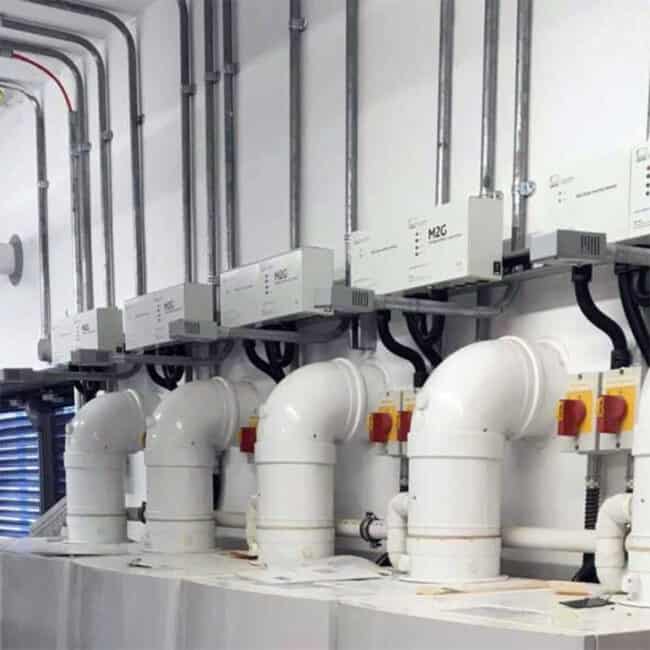Why 2021 is a crucial year for the growth prospects of greentech firms
"I am told by scientists that 50% of the reductions we have to make to get to net zero are going to come from technologies that we don't yet have. That's just a reality."
The words of John Kerry, US climate envoy, ahead of a recent visit to London to meet government representatives before the UN climate change conference COP26, due to be held in Glasgow in November.
It was a stark reminder of the challenges that lie ahead in efforts to reduce the impact of climate change. In 2019, the UK became one of the first countries to set a goal of reaching net zero emissions by 2050, a target scientists say is necessary globally to avoid the worst effects of climate breakdown. Since then, dozens of other countries have followed suit, including China and Japan.
As outlined by Kerry, technology will continue to play a crucial role in helping to reverse the effects of climate change and pollution. The type of technology, and the problems it addresses, vary greatly. From the management and recycling of waste material to the harnessing of energy from waves, tides and currents, technological innovations are vital. Without innovation, there is little hope of reaching that 2050 goal.
That innovation requires funding. Last year the UK attracted $15 billion in venture capital funding. However, greentech companies are often at a disadvantage when it comes to accessing venture capital due to the longer timescales they operate on.
The March 2021 UK budget outlined support for the development of green energy innovation schemes as part of the £1 billion 'Net Zero Innovation Portfolio', issuing of the UK's first sovereign green bond and a new wave of investment into energy innovation. This includes £20 million for floating offshore wind tech and a £68 million competition for energy storage prototypes. The announcement was welcomed by Tech Nation, the UK tech entrepreneur network, which said that the long-term objectives of Greentech scale-ups "need to be met by long-term backing."
Securing that funding requires awareness - getting your brand and proposition in front of the right people - and, in an ever-growing and competitive market, that is not always easy to achieve.
Babel has vast experience of helping greentech companies meet their growth objectives. In October 2020 we began working with GenCell, a pioneering company in the hydrogen energy industry. Recognised as one of Israel's most innovative tech companies, GenCell develops unique alkaline fuel cell solutions that deliver clean, reliable and cost-efficient power from hydrogen. Its long-duration backup power solutions support telecom towers, manufacturing plants, mission-critical security applications and hospitals in 18 countries around the world.
Within three months of working together, Babel significantly increased the frequency and quality of media coverage for GenCell across multiple global target markets. Briefings were secured with Forbes, The Guardian and Bloomberg.
These briefings, as well as reactive commentary in response to breaking news stories and the distribution of company announcements, resulted in 40 pieces of media coverage, 87% in agreed 'top tier' publications. Coverage in Bloomberg and Forbes has helped to position GenCell as a leader in green hydrogen energy solutions.
GenCell continues to grow, and in April it announced that it has secured support from a group of international institutional investors, led by BNP Paribas through its investment arm, BNP Paribas Energy Transition Fund, together with TDK Ventures and additional investors. GenCell CEO, Rami Reshef, said that the investment will help the company to further strengthen its position in target markets.
Reshef will be among the panellists at the next #BabelTalks webinar, on 24th June at 1600 BST. The event will focus on the role of technology in fighting climate change and how, in the year of COP26, greentech firms can raise their profile among potential customers and investors. He will be joined by Nicolas Sauvage, managing director of GenCell investor TDK Ventures, which recently launched its second fund with $150 million and a mandate to invest in early-stage materials science, energy and clean tech, mobility and robotics startups. We will also welcome Fiona Harvey, award-winning environment journalist for the Guardian. She has reported on every major environmental issue, from as far afield as the Arctic and the Amazon, and her wide range of interviewees include Ban Ki-moon, Tony Blair, Al Gore and Jeff Immelt.
Register here to secure your place at the free online event.








